From Bangkit Academy to AWS Community Builder
Posted on January 17, 2023 • 17 min read • 3,502 words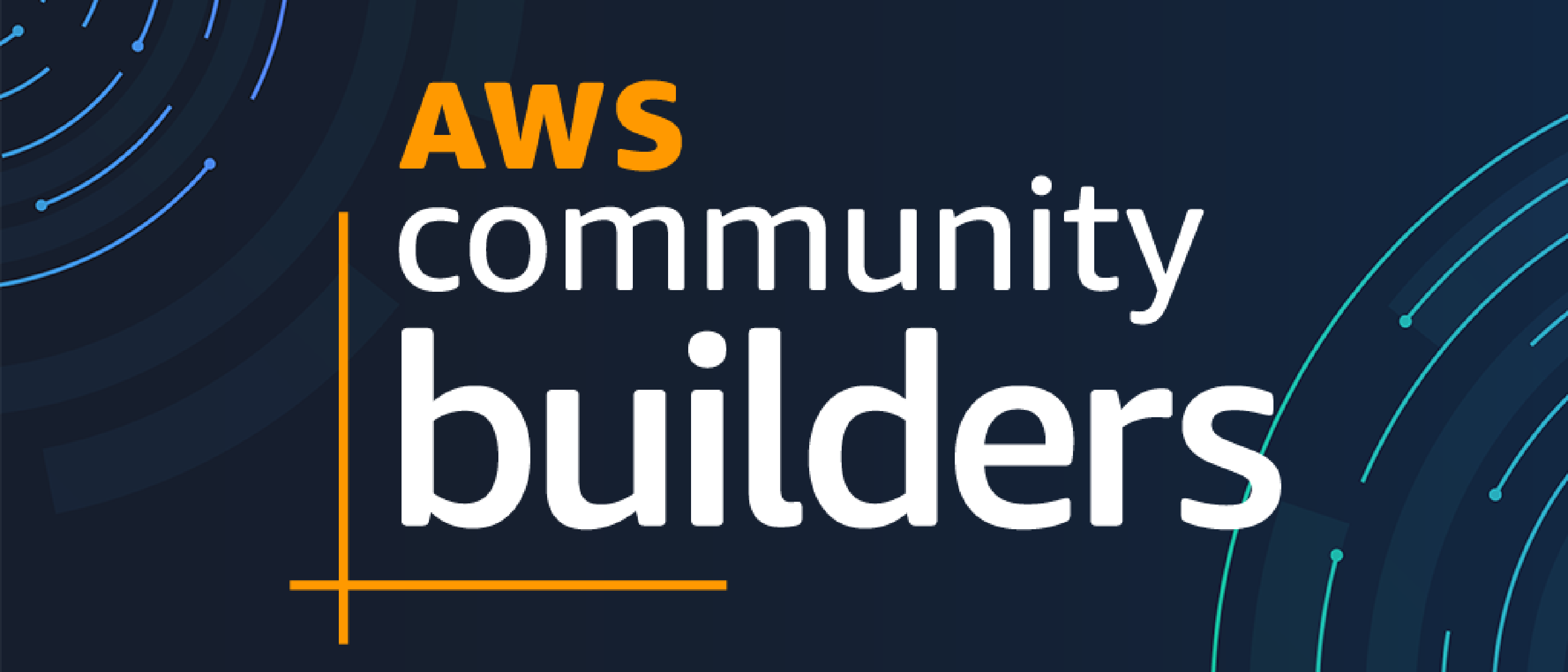
Community Builders social 1024px ALT.png This writing was actually composed in 2020, but due to circumstances, or rather, procrastination, I only managed to finish it in 2023.
The story goes back to when I became a member of the Bangkit community during its early days, before it was incorporated into the current independent curriculum specifically designed for students nearing graduation. So, let me explain it first.
How can I shift my career from a Physics background?
Disclaimer: This article was created in early 2023, and there could have been changes policy to some program. Additionally, I do not reside in the regency in Indonesia, and my current objectives (2024) may differ from what is expressed here.
What is Bangkit?
Bangkit Academy is a Machine Learning (ML) program—since 2021, with additions of Android and Cloud components—initiated by Google Indonesia in collaboration with Gojek, Tokopedia, and Traveloka. The program offers courses both online and offline in four major cities in Indonesia: Jakarta, Bandung, Denpasar, and Yogyakarta, spanning a duration of 6 months in 2020. Its purpose is to cultivate new ML developers in Indonesia. In the preceding years, Google had organized similar training programs under the name “Kejar,” focusing on developing Android Developers in Indonesia; more information can be found here.
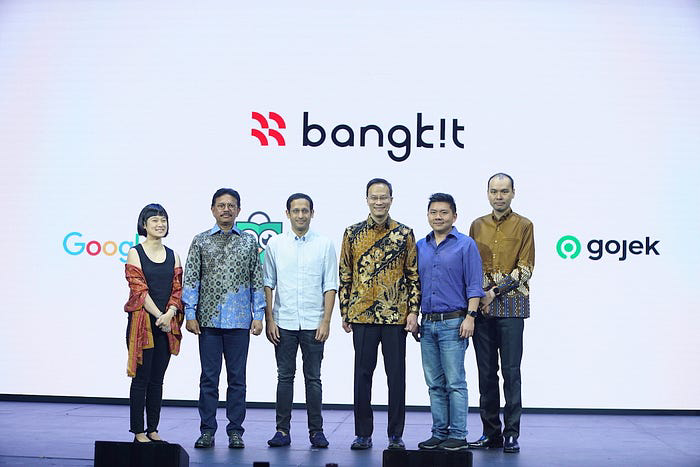
Source here
Returning to Bangkit, in November 2019, the program was officially launched, and you can find the news here. Only 300 individuals would be selected for this program, and the selection process was rigorous.
How did I become a chosen participant in Bangkit Academy?
Initially, I learned about Bangkit Academy through a post on Dicoding. My interest in joining the program stemmed from my participation in the 2019 Digital Talent Scholarship Program, Fresh Graduate Academy, organized by the Ministry of Communication and Informatics of Indonesia. This two-month program took place at the Informatics Engineering Department of ITB, where I was guided by ITB informatics lecturers. At that time, the topics I covered were Machine Learning and Cloud Computing. I felt compelled to participate in Bangkit because the content aligned with my previous experience in Machine Learning, and the added benefit was a free Tensorflow Developer voucher. Of course, there was a selection process, similar to the DTS program.
The selection process utilized the Astronaut application, as detailed here. Participants were given three math problems related to statistics (mean, median, etc.), derivative questions, and calculations of speed and distance within one minute. Following that, three questions were posed regarding the reasons for wanting to join Bangkit, how to manage time effectively, and how to overcome obstacles. All responses had to be in English and recorded within a time frame of less than one minute.
Once the responses were submitted, participants received notification emails like the one below.
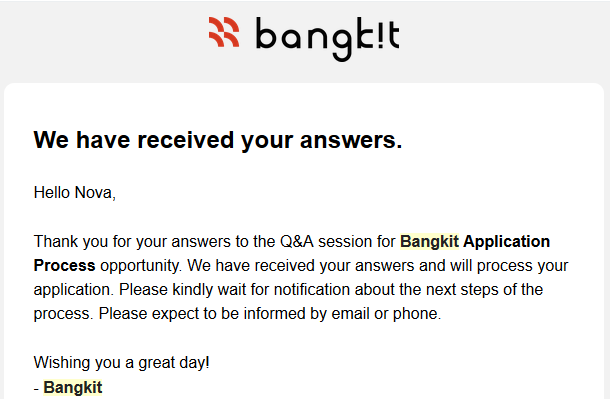
Next, on January 21, 2020, I received the announcement that I had been accepted as one of the 300 selected individuals; you can find the news here. The selection process at that time was extremely rigorous. William Florence, one of the pioneers of Bangkit from Google, mentioned that there were initially 7000 candidates, but only around 2000 completed the exam and were then further narrowed down to the final 300 participants. I consider myself fortunate to be one of the participants in Bangkit.
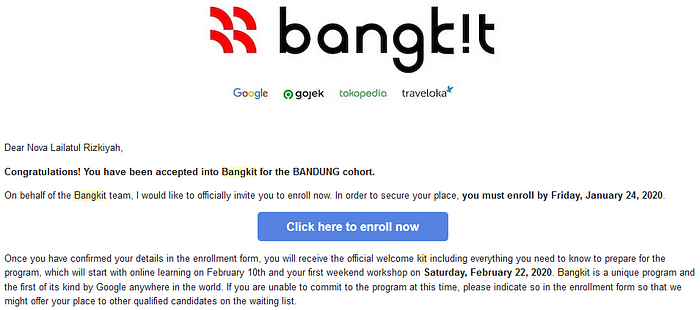
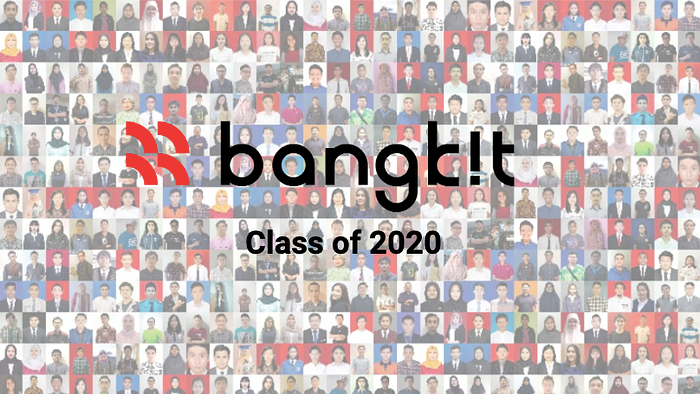
Image source: here
Day 1 and Day 2 Workshops at ITB
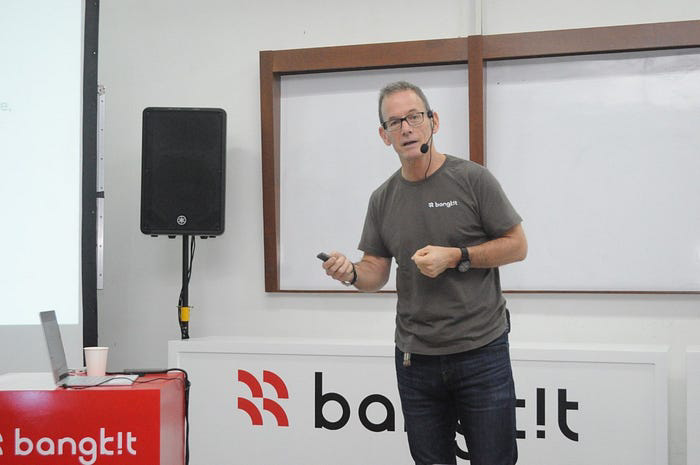
William Florence from Google, Photo source: Twitter Google Developer Indonesia
William Florence addressed the class at the ITB Informatics, Bandung cohort, consisting of around 100 students. My classmates were mostly final-year ITB Informatics students, along with some students from Telkom and a few graduates/students from private universities in Bandung. Adit, a fellow FMIPA 2012 student, who was a former mathematics student, also participated. I also got acquainted with Bu Tia, a senior in ITB Physics.
William Florence, speaking in English, quickly mentioned that Bangkit was created to bridge students with strong analytical skills, enabling them to work in startups such as unicorn companies: Tokopedia, Bukalapak, Traveloka, Gojek, and even Google or newly established startups. Almost all 300 participants, 62% were students or unemployed, and the rest were professionals. 26% of them were women. William mentioned that this statistic was better than the previous Kejar program, which had fewer women and lacked diversity.
Who are the mentors?
What sets Bangkit apart from free online platforms on Google? The answer lies in having mentors who are experienced, providing students with the privilege of direct interaction with them.
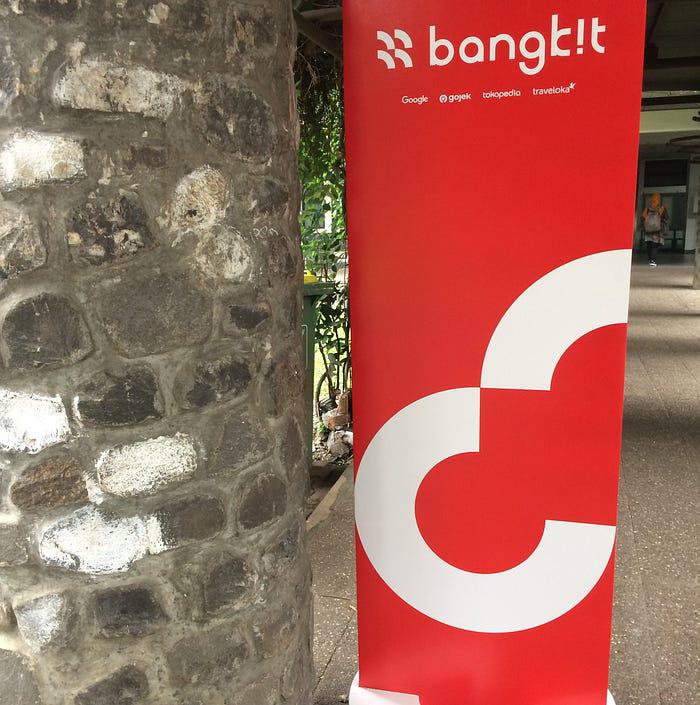
Photo source: Personal, on the way to Labtek V, ITB Informatics, near my Physics class at ITB
Mentors can be Indonesians or foreigners who have been working in the industry for several years. These individuals are well-known in the Indonesian tech community.
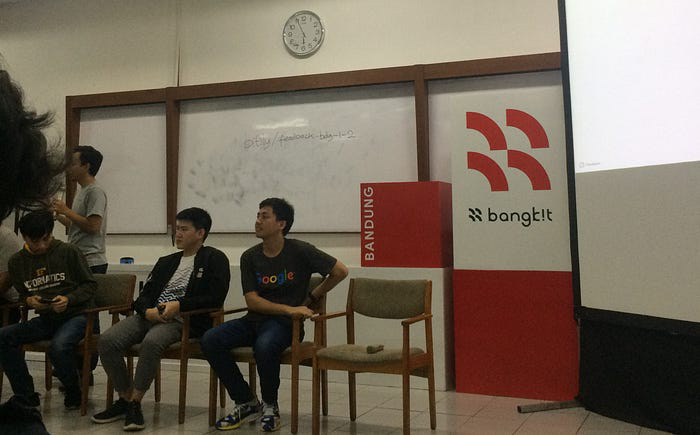
Class in Labtek V with Feryandi and others, Photo source: Personal
Moreover, Bangkit is a workshop or a kind of boot camp that combines both online and offline courses. Since everyone has different learning abilities, the program lasts for six months to allow all participants sufficient time to complete assignments. Offline sessions take place in several cities in Indonesia (Jakarta, Bandung, Yogyakarta, Bali) every weekend. Each week, participants receive assignments, whether they are related to Tech Topics or soft skills.
What makes it interesting is that we receive a custom ID card (very impressive: it has our photo on it, along with a lanyard featuring the Bangkit logo). We also get a t-shirt and a pen that lights up when pressed (very tech). Additionally, we receive a notebook.
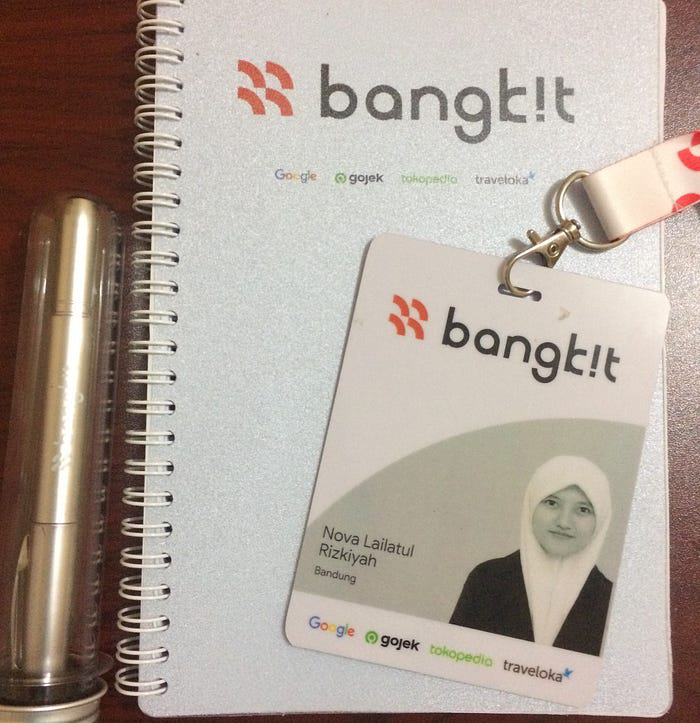
Photo source: Personal
After a few hours of learning about Machine Learning, an icebreaker activity called “writing bingo” is introduced to get to know new classmates.
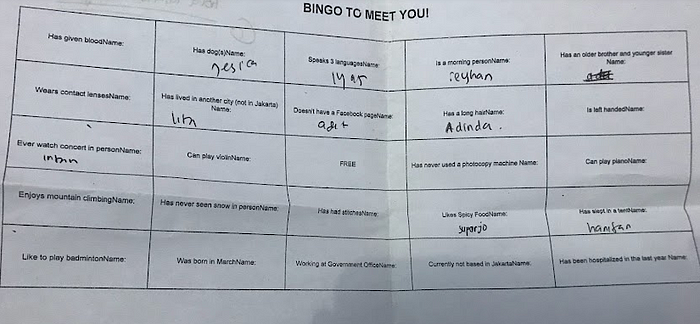
Bingo quiz, Photo source: Personal
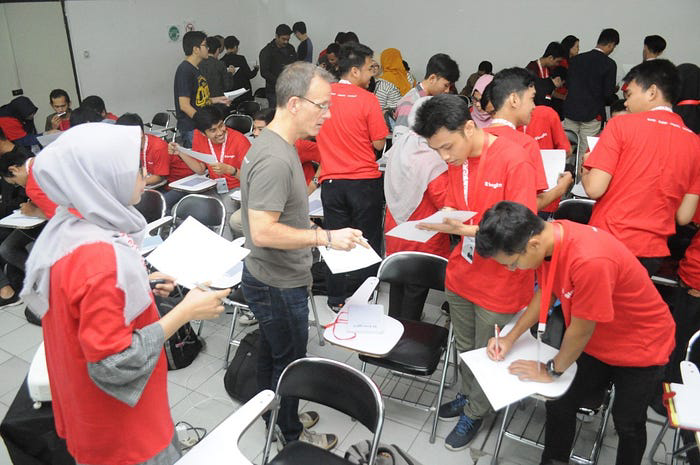
Searching for a partner to get Bingo, Photo source: Twitter Google Developer Indonesia
Next, we have to work on group problems to solve case studies.
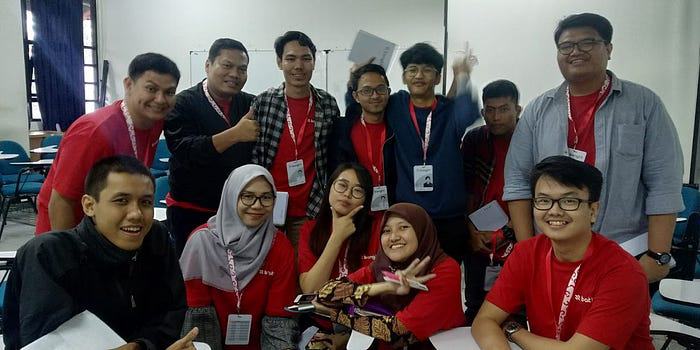
With Agi and Adit, groupmates-to-be, Photo source: Agi’s phone
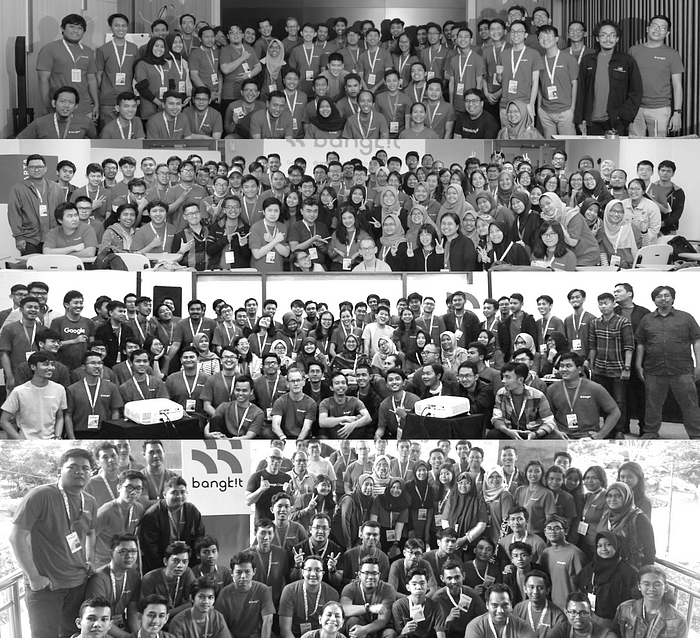
Photo source: Bangkit Slack Group
Suddenly, the togetherness disappears due to the pandemic. All gatherings, including offline events, are canceled. So, there are only online events. We already know that online events have both positive and negative impacts.
Bangkit Academy In the Middle of Pandemic

Bangkit events continue but only online, including all tasks, materials, mentoring, and the final project. Despite the challenges, we manage to stay enthusiastic until the end. What’s interesting is that among the many participants, only those selected will receive a free Tensorflow Developer voucher. Alhamdulillah, in the end, I also received that free voucher. However, when answering the last question during the exam, my laptop couldn’t handle it, so it froze, and I failed to obtain the international Tensorflow Developer certification (even though it was already paid for). :”

Crying, Source: here
But I will tell another interesting story:
During an offline class, we learned soft skills such as SMART diagrams and SWOT, which I already knew in theory. However, the moment was right with ambitious friends in the class. One day, William Florence, the Google representative, asked me while I was sitting near the stairs during a break. We talked, and he asked about my background, origin, and daily activities. I casually shared in broken English that I had just completed my master’s in Physics at ITB last year (2019), my child was not yet two years old, and to attend the program, I had to wake up early and take care of my child and husband. Later, in class, Mr. William shared my story with all my classmates. I felt embarrassed, but here I realized that most of my classmates were unmarried, fresh graduates, and had ambitious goals, while I attended the class without knowing exactly why, apart from passing the exam.
Here, I realized that I shouldn’t look at things from the perspective of my classmates, who just came to class without distractions. I couldn’t adopt that mindset as when I was single, climbing Mount Ijen, and had a lot of free time. I had to acknowledge that I was a mother who happened to have a rare opportunity to join that moment. If I continued to think as if I were still young, I wouldn’t progress because there were so many obstacles and challenges.
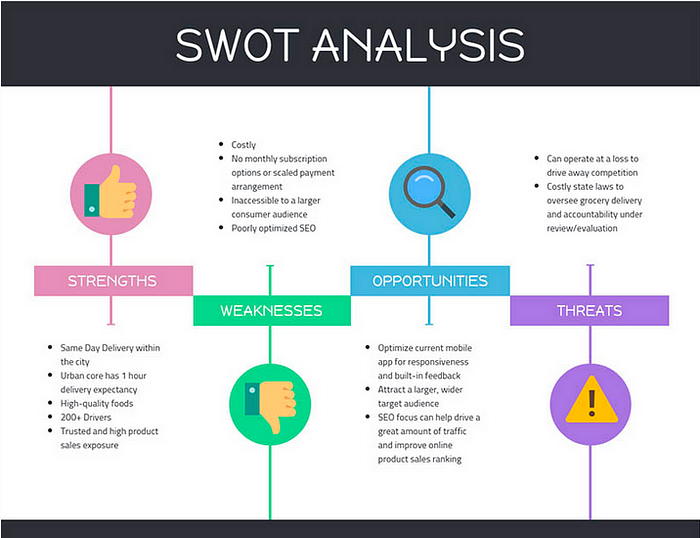
Source: venngage.com
This is where we were taught about SWOT and SMART materials, and then given a task. Since the task needed to be written, I imagined all the challenges and opportunities within myself. I wrote it and submitted it, and my classmates could read my writing here. So, it’s clear that I couldn’t compare myself with my classmates, even though we received the same lessons in that class. The term is “we are not in the same boat.”
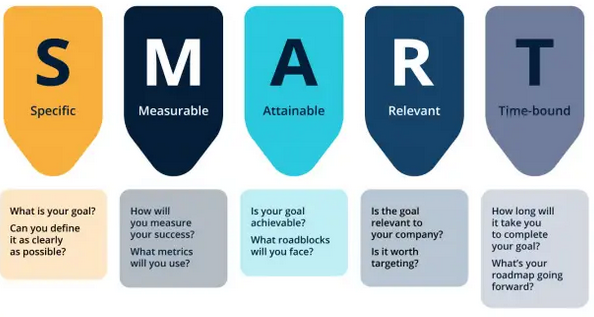
Source: gettalkative.com
So here’s my Aha moment when I finally had my first mentor, an Indonesian woman and former computer science student at UI, working at Google Japan. If asked now about how I learn, I simply “try everything that works or not, every single day (even if it’s just for minutes).”
At that time, I exchanged emails with my mentor, and she said something like this:

Email with my mentor, source: Personal
Reading this email again now (2023), I am happy because I have much more confidence than I did back in Bangkit, where I felt insecure surrounded by cool friends and mentors. It was an Aha moment that changed my perspective on myself as a mother, as a human with dreams. However, my progress is still slow because until now, I can’t run fast (in terms of learning).
Next, I will explain why I eventually did not choose the path of Machine Learning/Artificial Intelligence/other related terms.
Adhi, the chairman of the ITB Informatics Student Association during his time, shared his journey to stay on the machine learning path at the end of the Bangkit graduation event. He worked at a tech company in London while pursuing his PhD there. As he shared the pros and cons of his career journey, his outstanding skills did not guarantee a smooth journey. There were times when he wasn’t paid, and there were sad moments that, if I think about happening to me, I wouldn’t be able to bear it. After that, I thought that I didn’t want to be in the ML/AI field, which was trendy around 2019-2020. In conclusion, it seemed too difficult, and I didn’t have significant privileges to be in the ML/AI field.
I wondered what I wanted to do, considering I also didn’t want to continue in the academic field after my Bachelor’s and Master’s degrees. Then I found the answer: Cloud Computing. Actually, in 2019, I had studied this, although I failed to get certified. At least I had learned something, even if not thoroughly. Finally, at the end of 2020, I tried to learn more diligently and successfully obtained my Cloud Practitioner Certification. I wrote about it here. After getting certified, some companies approached me on LinkedIn, although I knew my skills were still at a basic level. But I enjoyed learning and loved challenges. What I felt the most was the moment I was accepted into the world’s first international Cloud community, AWS or Amazon Web Services, the AWS Community Builder community (which is currently open for applications until January 23, 2023!), initiated by Jason Dunn in late 2020. Here, the learning process was evident because I had to be able and brave enough to create simple projects like tutorials/materials. I could only do that much, not like friends who were already experts. But, despite being in a group with super talented friends, I didn’t feel as insecure as before. Here are some tutorial videos (mostly about AWS) on my YouTube channel:
Perhaps I’ve made numerous mistakes, and I’m not yet proficient in English, but at least I dare to present myself and feel somewhat confident. Interestingly, as an AWS Community Builder, I happened to be selected by Shafraz Rahim to participate in AWS Community ASEAN 2021, representing Indonesia. Watch the video here. Thank you very much, Shafraz!
After that, I got an opportunity to work on a project at the beginning of 2022 (the person doesn’t want their name mentioned, but thank you very much!) who entrusted me to complete the project. In 2022, I focused on obtaining an international certification, the Solution Architect Associates (SAA) C-03. I’ve written about it here, and I’ve shared my journey in the AWS community here. Additionally, after obtaining the SAA certification, I was interviewed by various companies in Indonesia and abroad to join them. When asked, “What do you want, Mbak?”
I answered clearly:
- Work from Home because I currently live in a district, unable to work in Jakarta or other big cities.
- Part-time because I can’t work full-time, being a housewife without help, with a child in kindergarten, while my husband works full-time from home for 8 hours a day. If I also work 8 hours a day, it would be chaotic for our household. I prefer a maximum of 4 hours a day.
These two conditions turned out to be challenging to be accepted by Indonesian companies, possibly due to regulations regarding freelancers instead of full-time employees. That’s why I haven’t been accepted yet, even though the interviewers were very welcoming. Thank you very much, Pak/Kak!
Finally, I landed a job at a Japanese tech company based in Osaka, thanks to my friend who used to work there (Thanks to my physics friend who is always brilliant!). The company needed an SAA to become an AWS Partner. Since November 2022, I’ve been working remotely and part-time, fulfilling these two conditions. Even though I work on a contract basis (renewed every few months), it’s not an issue for me as I can work and contribute to the tech field. Interestingly, most of the tasks I handle are related to Cloud Computing on AWS, something I’ve learned independently. I also continue to self-learn and sharpen skills related to tech, including areas beyond Cloud Computing. I need to be patient with the learning process and be prepared if the contract ends, including learning new technologies trending in the tech community or enhancing specific skills in 2023, updating my portfolio.
So, when reading about changing direction in 2020, I was already halfway through the learning process and determined to stay in the tech field for flexibility reasons, especially the ability to work from home (essential for someone like me). Initially, in 2019, I didn’t expect much from my tech journey with a physics background. I understood that I was guided not to pursue an academic career in my field during my Master’s, and at that time, I didn’t know where to go. So, from joining DTS activities, continuing with Bangkit, AWS CB (from 2019 to 2023 now), I went wherever the wind took me.
The challenge, for me, is the struggle to consistently learn tech step by step, slowly every day. It’s challenging because it involves overcoming my own laziness. Now, as an employee, if the Japanese boss gives me new tasks, I try my best to do them well. If there are mistakes, I’m happy to receive feedback. :D
Thank you, Bangkit Academy, AWS Community Builders, all friends, and communities supporting me in the learning process from 2019 to 2023. I’m fortunate to have a supportive life partner/husband who encourages me to work in this way, especially as he also works in the tech field. In 2021, my husband changed my laptop’s OS from Windows to Linux Ubuntu. I was initially frustrated just with the installation, but I had to learn because, even though my husband is an engineer, he didn’t want to help me; the issues had to be faced by me alone. :") Such exercises turned out to be beneficial in the long run.
There are several challenges for housewives that I can summarize:
- Be prepared for a potentially long and slow journey. My solution is to maintain a personal journal, whether written or typed, tracking successes and failures with a time frame. Repeat, fail, correct/evaluate, and repeat.
- Clearly request support from your husband to work optimally, including dividing domestic tasks and establishing a daily rhythm. As time goes by, my husband has become adept at handling household chores, like washing dishes and clothes, hanging laundry, and ironing, among other tasks. While it might not always meet the “standard,” it’s okay. If I’m feeling well, I’ll kindly inform him; if not, I might get a bit edgy. Haha… sorry. But thank you very much for your help!
- Support from the extended family. The reason for moving to the district is that I have family here. For us, it seemed enough to endure living away for several years. Having extended family support has been instrumental in my journey.
- School-age children. This is my main reason for preparing early. Even though my child was still a baby at that time, I struggled to work as a freelancer and learn at events/activities mentioned earlier so that when my child started school, I already had some experience. I projected myself over several years, detailing what I did, so I didn’t waste time learning from scratch. When asked about my experience, I could confidently answer, even though the experience might not be extraordinary.
- Seek guidance from Allah; this should probably be the first point. Housewives, or women in general, have different talents/potentials. Some are talented cooks, some are domestic experts, like Marie Kondo, some are natural teachers, creating authentic curricula for their children, some are skilled in sales and entrepreneurship, while others must work and create from an office, etc. Since each is unique, comparisons might not be fair since the challenges are different. Seek guidance from Allah to solidify the determination, perhaps take a long trial and error, not guaranteed to succeed immediately. But at least asking for guidance from the one who created us is already one point of success.
- Structuring Thoughts: During my college years, I worked part-time as a journalist. Because I was consistently trained in writing, I found it easier to organize my complex thoughts a bit tidier. Writing became my way of dealing with Post-Partum Depression (PPD), which is incredibly exhausting. Even though I had read theories about PPD long before, facing depression after childbirth showed that I couldn’t control myself at times, especially when stressed with household and child care responsibilities. Through writing, I expressed my feelings and explained why certain things happened. It didn’t immediately lead to a solution, but at least I understood what a woman goes through after giving birth (with the pain and happiness) and which hormones are involved. Writing is an affordable and powerful tool to discover what we truly seek, digging from within. However, writing may not be the only method; some draw, tell stories/fables, create songs/poems/short stories, whatever medium is used, the goal is the same – structuring thoughts. Fun fact: I found that learning tech (outside of childcare and domestic affairs) actually helped reduce my PPD. This might be because I’ve been accustomed to learning since childhood. After completing my Master’s degree, suddenly not studying (seriously and intensively, plus standardized exams) made me more prone to stress. While learning also induces stress, I prefer the stress from learning over idleness, coupled with PPD’s tendency for overthinking.
So, from the period after graduating with a master’s degree in Physics from ITB in 2019 until 2023, I learned a lot about tech. The challenge wasn’t just because I’m a mother, but also because I had never studied tech before. I spent six years (Bachelor’s and Master’s) working on physics-related tasks, possessing analytical and research skills. Observing female friends in tech, they mostly had educational backgrounds supporting their roles (Computer Science programs). On the other hand, male counterparts had more diverse backgrounds, some with a basic CS foundation, while others did not. The proportion was interesting. Despite the common saying that women are emotional and men are logical, it’s not accurate. One reason could be that women might not be accustomed to or aware of how and what tech to learn, whereas men were given early opportunities to learn computers through childhood game introductions. With a physics background and research experience during college, I devised my own learning path and process through trial and error, or experimentation. It might not be perfect, but through experimentation, I learned more.
In conclusion, this is my story or experience in learning tech. I admit I haven’t achieved 100%, and maybe I never will as I aspired to. However, I am thrilled to work in the tech field for the aforementioned reasons, with support from many parties. Even during Bangkit activities, I was advised to improve my LinkedIn profile (and it worked!), even fixing my chaotic Curriculum Vitae (CV). Thanks to friends who played a significant role in assisting me!
Stay spirited, fellow women!
If anyone has specific questions, feel free to DM me on my LinkedIn. Insha Allah, I can help because my life has been assisted by many people. :D
Nova, a newbie at everything so she can learn anything. Cheers!